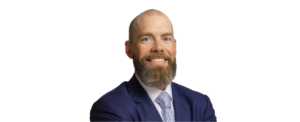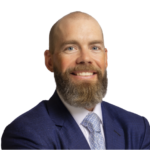Our national emergency continues as the spread of the novel Coronavirus COVID-19 challenges the country’s healthcare community.
I want our physicians, advanced practice clinicians and hospital and healthcare system clients to know that we are in this national crisis together. I believe this adage has never resonated more: There is strength in numbers.
We have been reaching out to our providers to check in with them directly. We are in a key role at Hayes due to the urgent demand for medical staffing. As a firm with national reach, we are actively committed to fill vital frontline roles, including Hospitalist, Emergency Medicine and Pulmonary Critical Care gaps, among others that are needed at this challenging time. While the doctor shortage is already affecting rural areas, urban metros are also in dire need of help. Right now.
That’s why the influx of providers looking to help all over the country — during this crisis — has validated the fact that we truly are in this together, and collectively, what we do matters. I can’t say it enough: Coming together makes us stronger.
To succeed, the medical infrastructure of our country will require that we continue pushing forward, despite the uncertainties. It means we can help save lives and maintain patients’ health despite the circumstances. The goal is constant: Save lives and help flatten the curve.
What’s Happening Now
I recently wrote a blog about how locum tenens is an excellent career step for graduating residents and fellows in Locum Tenens as Your Next Step After Residency or Fellowship. I am gratified that we have heard from many graduating residents and fellows who are interested in considering locums to kick off their careers. But particularly now, with COVID-19 overwhelming patient care, I would like to suggest that my original message carries even more importance. For now, whether it is during COVID-19 or beyond, patients need your help.
“I can’t say it enough: Coming together makes us stronger.”
Without a doubt, weighing the risks versus the rewards is a highly personal decision for all providers who fill critical roles in the fight against COVID-19. And still, despite the extreme challenges, the medical community continues to astound with heroic choices and acts of valor. A patient-first philosophy is the top priority. All providers are wielding shields and badges of courage, not only graduating med students and fellows, but also mid-career and seasoned providers.
Here are just a few examples that are certainly indicative of the locums take on practicing medicine — jumping in and doing whatever it takes:
- As backfilling medical staff becomes vital for how hospitals will continue to care for patients over the crisis long haul, some surgical residents are stepping in. USC’s Keck School of Medicine trained more than 50 surgical residents in essential nursing skills for intensive care.
- The Grossman School of Medicine at New York University is offering its fourth-year medical students who have fulfilled their training requirements to graduate early, be approved by the state, and then rush right in to get to work helping to beat the novel Coronavirus pandemic.
- Columbia’s Vagelos College of Physicians and Surgeons will be graduating final year medical students early to assist with the case surge of COVID-19 patients.
- Medical schools at Tufts University, Boston University and the University of Massachusetts are moving up their graduation dates to allow students to work at frontline hospitals.
- Harvard Medical School students will have the option to graduate early in order to help staff at hospitals overwhelmed with COVID-19 patients.
“The goal is unwavering: Save lives and help flatten the curve.”
Heroic Efforts in the Time of COVID-19
The heroism of physicians and countless healthcare workers on the front lines is remarkable and inspiring. To all the providers and other healthcare workers facing down this invisible enemy, we owe you our thanks. We recognize you with our deepest gratitude.
At Hayes Locums our Consultant team is as committed and dedicated as ever to help fill staffing gaps where frontline specialists are needed the most for crisis urgent patient care. This is a seismic health emergency that calls for everything we’ve got and then some.





